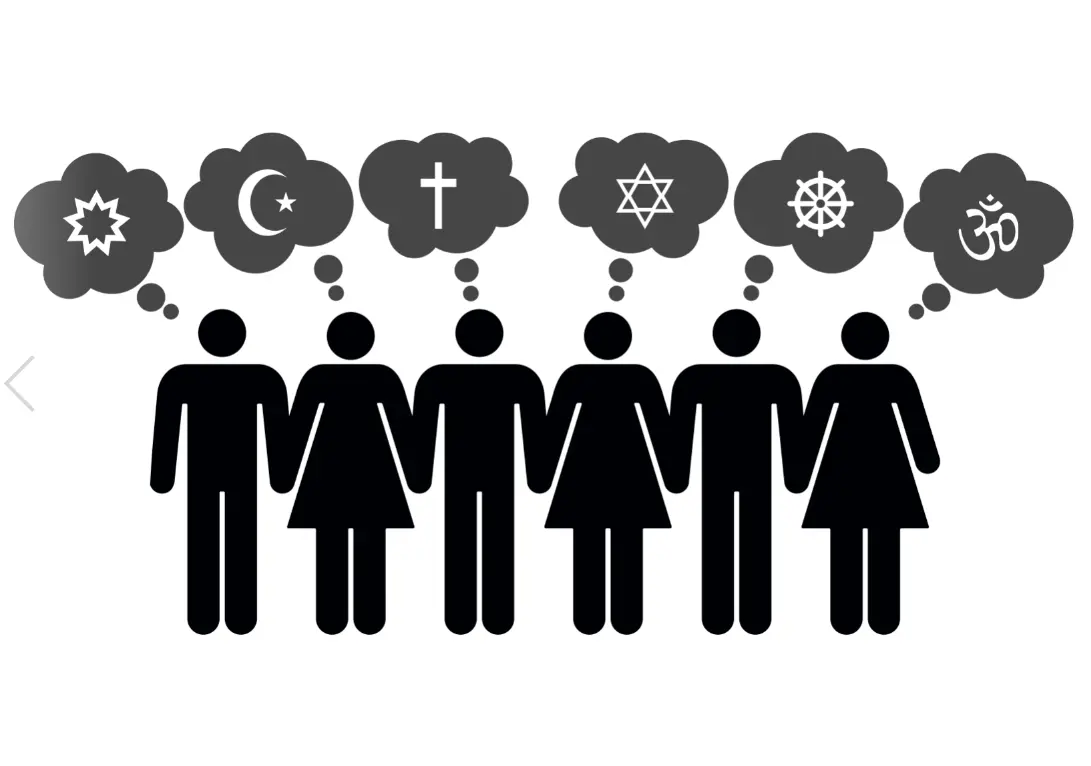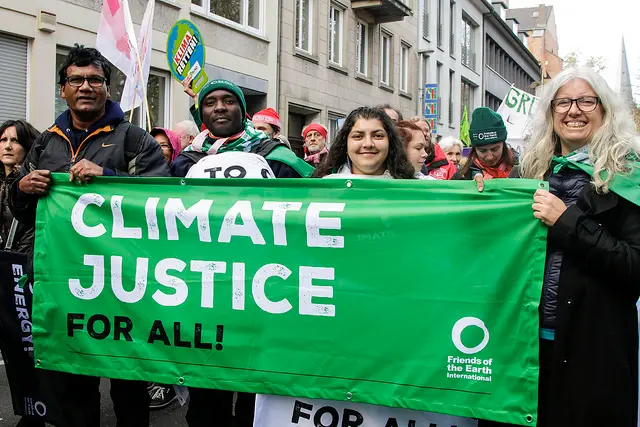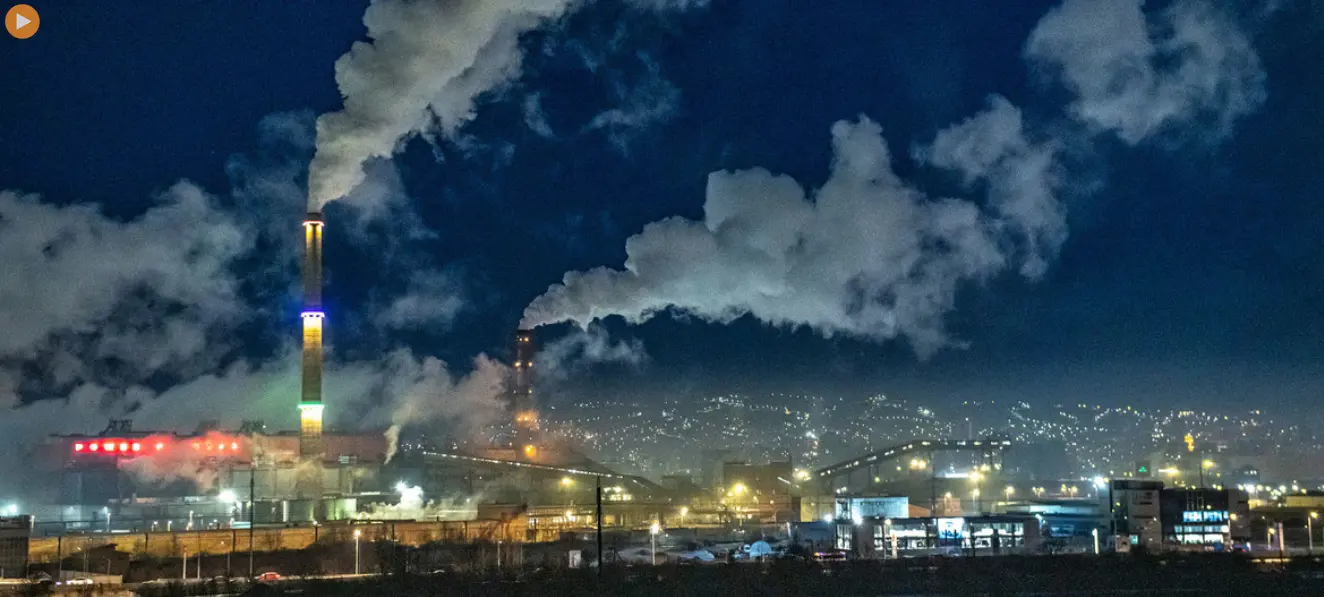The Paris Agreement
This (Paris Agreement) process is where all countries must report their greenhouse gas emissions and plans to reduce, where developed countries must lead in emissions reduction and climate finance, where the drive for finance to poorer countries is organized, where the UN coordinates meetings and calculates progress (or lack of), and where an intergovernmental body collates the latest climate science to summarize consequences of insufficient inaction to life on earth – all informing and empowering citizens to evaluate their own, and the effectiveness of their governments’, response. The response is both individual and national.
There rises a question about developed countries (think, North-South divide) and whether or not the Glasgow Climate Pact galvanised leadership into taking action to reduce their own oil and gas production, transform unsustainable economic systems, consumption levels and industrial agriculture, and take accountability for their fair share in delivering promised finance to poorer countries. Whether you want to call this metta (Buddhism), hesed (Judaism), dharma (Hinduism) khalifah (Islam) or metanoia (Christianity), the transformation to a just management and stewardship of the Earth and its resources is spiritual imperative for all people in all locations. It is said that The Lord hears the cry of the poor: the rich countries have to hear it, and hear this call as a reminder their obligation to social justice for poorer nations. This includes the so-called adaptation fund which has yet to be distributed to countries in need – who suffer the worst excesses of climate change. This particular statement was echoed again and again at COP26…
The Human Rights Council
On October 8, the UN Human Rights Council passed a resolution that (the right to) a healthy environment acknowledges the damage inflicted by climate change and environmental destruction on millions of people across the world.
The Human Rights Council today recognised for the first time that having a clean, healthy and sustainable environment is indeed a human right, in its resolution 48/13. The Council called on States to work together, and with other partners, to implement this newly recognised right. At the same time, through a second resolution (48/14), the Council also increased its focus on the human rights impacts of climate change by establishing a Special Rapporteur dedicated specifically to that issue.
This matter was largely overlooked at COP26. The only area where human rights were referenced was in the Carbon Markets mechanisms of Article 6. Guidelines addressed accounting issues with respect to Nationally Determined Contributions. The guidelines included some significant human rights and Indigenous People’s rights language, and an ‘independent redress process’, critical to help avoid abuses experienced in earlier carbon offset models. The inclusion of human rights language stopped short of saying that all peoples were affected by climate change and said that climate justice was a matter for some, and not for all.
COP26 witnessed an extraordinary rise in civil society activism. This extended across all faiths present at COP26: from Christians to Buddhist, Muslim, Hindu, Brahma Kumaris, Jews, Interfaith networks and their representatives, Quakers, Sikhs, and interfaith pilgrimages to Glasgow. There were consistent demands for action on Loss and Damage, and integrity with Climate Finance. Much of climate finances is given out in loans, and not grants. It is clear that there are demands for government policy to involve meaningful public participation to better protect communities negatively affected by climate action. Addressing the symptoms instead of the root causes of climate change has turned into a lucrative business for some.
In February of 2022, the IPCC will complete its release of the 6th Assessment Report, and people are listening. Gone are the days when governments send delegates to COP and make their own decisions without regard to the climate justice issues raised by civil society. People’s engagement can profoundly influence the rate of transformational change, in more healthy and fair government policy and regulation, in private enterprise, meaningful nature regeneration and protection, and in community efforts to achieve the systemic changes needed to avoid catastrophic global heating and environmental destruction.
Faith communities are going green. Faith communities are taking financial institutions to task over financing fossil fuel projects, and causing these institutions to change to a green track with finance and investing. Faith communities demand climate justice – across a wide spectrum of spiritual experience and spiritual beliefs.

Information must produce transformation.
Fossil fuel production ‘dangerously out of sync’ with climate change targets
Despite increased climate ambition and net-zero commitments, governments still plan to produce more than double the amount of energy from fossil fuels in 2030, than the amount that would limit global warming to the Paris Agreement level of 1.5°C.
That’s according to the 2021 Production Gap Report, released this Wednesday by leading research institutes and the UN Environment Programme (UNEP).
Over the next two decades, governments are projecting an increase in global oil and gas production, and only a modest decrease in coal production.
Taken together, these plans mean that fossil fuel production will increase overall, to at least 2040.
Urgent matters
For Executive Director of UNEP, Inger Andersen, “there is still time to limit long-term warming to 1.5°C [above pre-industrial levels], but this window of opportunity is rapidly closing.”
Ms. Andersen said that at the UN Climate Conference, COP26, taking place in early November in Glasgow, “governments must step up, taking rapid and immediate steps to close the fossil fuel production gap and ensure a just and equitable transition.”
“This is what climate ambition looks like”, she said.
This year’s report provides profiles for 15 major producer countries, showing that most will continue to support fossil fuel production growth.
Reacting to the report, the UN Secretary General highlighted recent announcements by the world’s largest economies to end financing of coal, calling them “a much-needed step” in phasing out fossil fuels.
For António Guterres, though, the report shows that “there is still a long way to go to a clean energy future.”
“It is urgent that all remaining public financiers as well as private finance, including commercial banks and asset managers, switch their funding from coal to renewables to promote full decarbonization of the power sector and access to renewable energy for all”, he said.
Main findings
Countries surveyed plan to produce around 110 per cent more fossil fuels in 2030 than would be consistent with the 1.5°C limit, and 45 per cent more than what would allow a 2°C heating impact.
The report, first launched in 2019, measures the gap between governments’ production plans and the levels consistent with the Paris Agreement. Two years later, the size of the gap has remained largely unchanged.
Current plans would lead to about 240 per cent more coal, 57 per cent more oil, and 71 per cent more gas production in 2030, than would be consistent with limiting global warming to 1.5°C.
Global gas output is projected to increase the most between 2020 and 2040, continuing a trend of long-term global expansion inconsistent with the Paris Agreement.
Since the beginning of the COVID-19 pandemic, countries have directed over $300 billion in new funds towards fossil fuel activities – more than they have towards clean energy.
In contrast, international public finance for fossil fuels from G20 countries and major multilateral development banks has decreased. Currently, a third of these banks and G20 development finance institutions have adopted policies that exclude fossil fuel production in the future.
Decline must start now
For lead author of the report, Ploy Achakulwisut, the research is clear: “Global coal, oil, and gas production must start declining immediately and steeply to be consistent with limiting long-term warming to 1.5°C.”
The report is produced by the Stockholm Environment Institute (SEI), International Institute for Sustainable Development (IISD), ODI, E3G, and UNEP.
More than 80 researchers contributed to the analysis and review, including numerous universities, think tanks and other research organizations.



